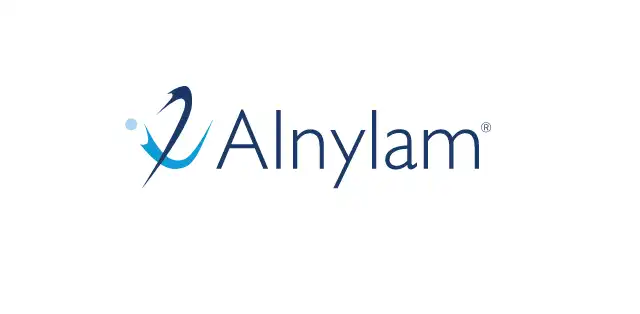RNAi for Alzheimer’s disease: Rapidly and durably reduces the production of toxic proteins
- Normal Liver Cells Found to Promote Cancer Metastasis to the Liver
- Nearly 80% Complete Remission: Breakthrough in ADC Anti-Tumor Treatment
- Vaccination Against Common Diseases May Prevent Dementia!
- New Alzheimer’s Disease (AD) Diagnosis and Staging Criteria
- Breakthrough in Alzheimer’s Disease: New Nasal Spray Halts Cognitive Decline by Targeting Toxic Protein
- Can the Tap Water at the Paris Olympics be Drunk Directly?
RNAi for Alzheimer’s disease: Rapidly and durably reduces the production of toxic proteins
- Should China be held legally responsible for the US’s $18 trillion COVID losses?
- CT Radiation Exposure Linked to Blood Cancer in Children and Adolescents
- FDA has mandated a top-level black box warning for all marketed CAR-T therapies
- Can people with high blood pressure eat peanuts?
- What is the difference between dopamine and dobutamine?
- How long can the patient live after heart stent surgery?
RNAi for Alzheimer’s disease: Rapidly and durably reduces the production of toxic proteins.
RNAi treatment of Alzheimer’s disease: Alnylam releases clinical data, rapidly and durably reduces the production of toxic proteins.
Recently, at the Alzheimer’s Association International Conference in Amsterdam, Alnylam reported early data from its Phase 1 clinical trial of its RNAi therapy for the treatment of Alzheimer’s disease, showing that the RNAi therapy (ALN-APP) rapidly It also resulted in a lasting reduction in the production of the disease-associated biomarker amyloid precursor protein (APP) in the brains of patients .

This is also the first time that Alnylam has released an RNAi therapy delivered (intrathecally) to the central nervous system (CNS) , which also represents a new approach to Alzheimer’s disease that is different from monoclonal antibodies.
On July 6 this year, the FDA fully approved a new drug for Alzheimer’s disease, lecanemab (trade name Leqem bi ) , which is a monoclonal antibody drug targeting β-amyloid protein (Aβ). FDA fully approved new drug for Alzheimer’s disease.
Alzheimer’s disease is one of the most difficult diseases for pharmaceutical companies, and many pharmaceutical giants have failed. For this study, Alnylam has enrolled 20 Alzheimer’s patients in Part A of an early-stage clinical trial divided into three single-dose cohorts.
Alnylam said that so far, patients have been well tolerated, with mild to moderate adverse reactions. Post-treatment tests showed a “rapid and sustained decline” in the levels of the amyloid precursor protein (APP) in the patient’s cerebrospinal fluid.
The APP protein leads to overproduction of beta-amyloid (Aβ) in the brain, which leads to the accumulation of amyloid plaques, a hallmark of Alzheimer’s disease.
The RNA therapy resulted in an 84% and 90% reduction in soluble APPα and soluble APPβ, respectively, and this reduction persisted for 6 months after administration.
It is reported that Alnylam will start part B of the clinical trial, which will recruit more patients with Alzheimer’s disease to participate in the clinical trial of multiple doses.
About RNAi
RNA interference (RNAi) , also known as RNA silencing, refers to the phenomenon of efficient and specific degradation of homologous mRNA induced by double-stranded RNA.
In 1998, Andrew Fire and Craig Mello identified the mechanism of action of RNAi, and just 8 years later, the duo won the 2006 Nobel Prize in Physiology or Medicine.
The emergence of RNAi technology provides us with a very powerful tool for studying gene functions. By artificially synthesizing simple RNA fragments, specific genes can be silenced. This makes RNAi technology widely used in the field of basic scientific research.
Since then, scientists and pharmaceutical companies have been hoping to use RNAi technology to silence harmful genes and achieve the purpose of disease treatment.
Especially after the RNAi technology won the Nobel Prize, a large number of RNAi technology start-up companies have emerged, and many pharmaceutical giants have also invested in the research and development of new RNAi drugs, but the lack of effective delivery vehicles has severely limited the advancement of RNAi therapy.
It has also caused related companies to abandon the development of RNAi therapy.
But Alnylam persisted. In August 2018, 12 years after the RNAi technology won the Nobel Prize, the first RNAi therapy was approved by the FDA.
This RNAi therapy developed by Alnylam, Onpattro, was approved for the treatment of Stage 1 or stage 1 polyneuropathy in adults with hereditary amyloidosis.
Since then, Alnylam has made persistent efforts and successively launched 4 RNAi therapies. These RNAi therapies all target the treatment of liver diseases.
Now, the RNAi field is buzzing again, with many biotech startups chasing Alnylam while also developing new RNA medicines, and increasingly focusing on diseases beyond the liver, such as central nervous system (CNS) diseases that affect the brain and spinal cord .
Reference link :
RNAi for Alzheimer’s disease: Rapidly and durably reduces the production of toxic proteins
(source:internet, reference only)
Disclaimer of medicaltrend.org
Important Note: The information provided is for informational purposes only and should not be considered as medical advice.



